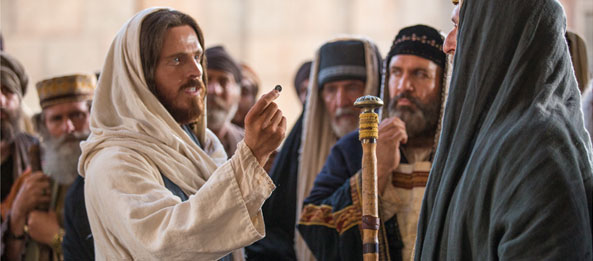Real God Real People
If God is real his people should be to. But our generation is complaining that the church is false. They see platform performances that resemble a show, men in flashy suits asking for money, and a church community that is out of touch with the real world. In this post I highlight some areas in which I believe the church needs to wake up and get real. It is a subject I am passionate about; in fact if you look at our website header above you will notice that ‘Real God Real People’ is the slogan of our church. And today I will touch on seven areas in which I believe we should be more real: worship, fellowship, ministry, evangelism, teaching, mercy and leadership. With each I will make a statement, give an illustration and follow both up with a scripture. Let me know at the end if you can relate to what I am saying. We will start with worship.
Worship is for God not our entertainment – it is powered by the Holy Spirit not human hype
– I’ve made two statements here, but they are closely related.
Years ago I attended a barn dance. This is a celebration using a western form of folk dancing. We all danced in sync and a leader called out the moves from the front. The dancing was energetic and alive, but no one would have said it was alive because of God. God was not on our minds.
There is a difference between alive entertainment and alive worship. Alive entertainment relies on human energy; alive worship relies on God’s energy – the Holy Spirit. But often churches confuse the two. Many church worship times are more like alive entertainment than alive worship. Worship is alive when God moves, not when people move. If people move when God is not, we just have a performance – even if it is an enjoyable one.
Worship should be led by the Spirit and not manipulated by human leaders. I have been to churches where the worship leader acts like he is co-ordinating a barn dance. He tells people to dance or shout or clap, and if they don’t t he asks “Why are you not dancing?” But how does someone dance if they just lost a loved one, or if their heart has a reason for feeling different? I welcome energetic worship, but it must come from the person’s heart and it must be initiated by the Holy Spirit.
Holland is famous for its windmills. Tourists travel from all over the world to see them. And of course, wind is important to windmills. They cannot operate if the wind isn’t blowing. But there is one windmill in Holland that turns even when the wind isn’t blowing. This is because it is on show. It is designed for tourists to look at and it has a little motor that keeps the sails turning even when there is no wind.
Many churches are like this. Worshippers celebrate the same way every Sunday with the same dancing and clapping regardless of whether the wind of the Holy Spirit is blowing or not. And the pastor continues to encourage it because it is appears lively and he wants a church that is known for being alive. But in Rev 3:1 Jesus says to the church in Sardis, “You have reputation of being alive, but you are dead.” Ouch! How can this be? Easy! It happens when worship is a performance – when it is not real!
At Vineyard Mombasa we guard against stirring up the congregation and try to look for what the Holy Spirit is doing. If he initiates something we flow with it.
Jesus said “True worshipers will worship the Father in the Spirit and in truth, for they are the kind of worshipers the Father seeks. God is spirit, and his worshipers must worship in the Spirit and in truth” (John 4:23).
Fellowship should be real and free of religious pretence
Some years ago I was driving along a hot dusty road on my way to church when I noticed a man and his family walking on the side. Most Kenyan’s walk everywhere and this family would not have caught my eye if it were not for the way they were dressed. The man was in a black suit with shiny black shoes and his daughter was in a frilly dress that came out at the bottom like a ballerina. I could not miss the contrast between the smart clothing and the dusty road. It was quite obvious that the man’s suit was unsuitable for the tropical heat and the girls dress was not good for African dust – these clothes would never look good if they walked this road every day. Then the penny dropped, and I thought “Ah, these are Sunday clothes.” But something about that bothered me. Why dress one way on a Sunday and another way on a Monday? Why act one way in church and another way outside it? Doesn’t double dress nurture a double life? In my experience believers who dress differently on Sundays also speak differently on Sundays. At church they say “Amen and at work they say “I agree,” at church they say “hallelujah” and at work they say “fantastic.” They live a double life, and the world sees it as weird. They say “Well if that’s what Jesus does to you then I don’t want him.” But Jesus doesn’t do it, the church does.
Once when I was in a bar I heard a man using bad language. Later someone from our church introduced me to him and told him “this is our pastor.” And without missing a beat he shook my hand saying “Praise the Lord, brother.” He was a double person, and quite comfortable with it.
Now don’t get me wrong, I know godly Christians can have a special Sunday dress, the problem is that Sunday dress, Sunday language, and Sunday behaviour reinforces what we don’t want to teach – a double life. We need to emphasize consistency; being the same in church and out of church. When someone meets a believer they should meet a real person, not someone who is a clone of some religious system. I encourage you to be yourself; dress the same, speak the same, act the same in and out of church. Remember, Jesus is the product and we are the package. If people don’t like the package they won’t buy the product.
Mombasa is very hot so I wear shorts most days. Does this change when I stand up to preach on a Sunday? No, why should it? On Sundays the sun is still hot and I am still Gary.
When Jesus saw Nathanael he said, “Here is a true Israelite in whom there is nothing false” (John 1:47). Wouldn’t you like Jesus to say that about you? John said “If we walk in the light, as he (God) is in the light, we have fellowship with one another” (1 John 1:7). Fellowship requires that we be transparent and real.
Ministry is for all and not the professional few
Someone once described a soccer game as 22 people desperately in need of a rest being watched by 22000 people desperately in need of exercise. The church is a bit like that: many people just sit and watch while a few do everything. We have forgotten that everyone is called and gifted to minister. Stereotype models of church have not helped. Many historic churches divide their members into clergy and laity, while many modern churches divide their congregation into ‘anointed’ and ‘un-anointed.’ Such segregation is not found in the New Testament and it hinders ordinary believers from using their gifts.
When I first began teaching our church that ‘all are ministers’ I encountered some problems because many in our congregation had come from churches with different models. One Sunday I taught on how to pray for healing. Afterwards I asked everyone who needed healing to raise their hands. Then I told everyone else to lay hands on the sick nearest to them and to pray for their healing. No one moved. I had just taught how to do it, so I added a few words to encourage them. Still no one moved. They were used to church models where the pastor did it all. Finally a guy called Steve laid his hands on a young lady and started praying. The Holy Spirit came on her with such power that she fell to the floor. Steve was stunned. God’s power had come through his hands, yet he had never done this before. From that day on he began laying hands on people with greater confidence.
We must free our congregations up to minister. Pastors should do the coaching – the people should do the praying. This is not only biblical, it also stops the preacher from becoming a showman who has all the power, and when he doesn’t is tempted to push people over or makes false claims about healing.
Paul said “To each one the manifestation of the Spirit is given for the common good” (1 Corinthians 12:7), and “Christ himself gave the apostles, the prophets, the evangelists, the pastors and teachers, to equip his people for works of service” (Ephesians 4:11-12).
Evangelism should be sensitive to individuals and their culture
Some years ago I was walking through the central part of Mombasa when I noticed a street evangelist on the pavement shouting at the top of his voice, but he had no audience, he was alone. As I walked past he switched from Swahili to English to catch my attention, but I took no notice. I did not have the desire to listen to a stranger who was screaming at me.
I have seen street preachers draw a crowd, but they are few and they are often considered ‘nutty’ by our modern generation. And we should not be surprised; things have changed. We live an age of TV where presenters talk calmly without raising their voices, where interviewers ask your opinion instead of telling you what to think. We live in the age of Facebook and internet blogging where everyone gets to have their say, and they get their questions answered in a personal way. To gain the respect of modern people our methods of evangelism have to change. We have to learn to be ‘conversational.’ And this doesn’t just apply to evangelism; it applies to all types of preaching.
One to one friendship evangelism in bars and clubs still works with the modern generation. Here the believer earns the right to speak about Christ by first building a relationship with the individual.
The Alpha Course is very effective amongst young people in the UK. Unbelieving friends are invited to a 12 week course in someone’s home. They share a meal, watch a DVD on an aspect of Christianity, and discuss it. Everyone gets input from the DVD and then they are able to share their opinion during the discussion.
Servant evangelism is also effective. This involves showing God’s love by giving the community a free service. One church organized a free car wash and when people ask why it was free they told them “Because we are Christians and want to show God’s love to the community.” This gets people’s attention; and this is being sensitive to individuals and modern culture.
Teachers should be honest with Scripture
Soon after I became a Christian I heard a number of pastors say that God wanted me to be rich. They quoted 2 Corinthians 8:9 which says “For you know the grace of our Lord Jesus Christ, that though he was rich, yet for your sake he became poor, so that you through his poverty might become rich.” Years later I realized that this verse did not say what they claimed. Jesus did not give up money or material possessions so that we could become rich. Jesus was rich in position – he was the Lord of heaven who came to earth and made himself nothing so we could be lifted to where he’s from. Paul was not telling the Corinthians that God wanted them to be financially rich; he was simply telling them to be sacrificial and generous like Jesus was. Paul never believed that God wanted us to be financially rich. In fact when speaking of false teachers Paul said “They…think that godliness is a means to financial gain. But godliness with contentment is great gain. For we brought nothing into the world, and we can take nothing out of it. But if we have food and clothing, we will be content with that. Those who want to get rich fall into temptation and a trap…” (1 Timothy 6:5-9). We must be honest with Scripture and not allow worldly desires to bend it’s meaning.
Being honest with Scripture also means that we should let it be what it is. We should not try to cover up its imperfections. Imperfections? Yes, for example – on one occasion Jesus said that a mustard seed “is the smallest of all seeds on earth” (Mark 4:31). Well, it may have been the smallest seed that Jesus and his generation knew of, but smaller seeds have been discovered since the time of Christ. Does this change his message? No, he was explaining how the kingdom of God grows from something small like a seed to something big like a tree. He could have used another seed for his illustration. But Jesus’ claim that the mustard seed is the smallest seed does reveal something important. God did not give Jesus and the writers of Scripture an understanding of modern science. He spoke through what they knew. When we read the Bible we have to strip away ancient science and ancient culture so we can get to the revelation inside. The Bible has a divine side and a human side. The divine side is timeless, the human side is not. The church could save itself from a lot of embarrassment if it would only acknowledge that Bible science is ancient science and there is no point in defending ancient science. Our job as teachers is to extract God’s revelation from the ancient and apply it to the modern. Jesus said “No one pours new wine into old wineskins. Otherwise, the wine will burst the skins, and both the wine and the wineskins will be ruined. No, they pour new wine into new wineskins” (Mark 2:22). God’s revelation always needs new packaging.
Mercy involves loving those that the religious often reject
I used have a worship leader who smoked. He wanted to quit but couldn’t. He loved the Lord and was gifted to lead, but churches refused to let him lead because of his addiction. We ignored his addiction, benefitted from his gift, and he grew as a leader in the process. At the time people wondered why I let a smoker lead our worship, and my answer was always the same, “Must I deny his heart and reject his gift because of a silly cigarette? Is that what Jesus would do?” The church could help many like him if we were more merciful and less legalistic.
When I first came to Mombasa I was asked to go and pray for a man who was recovering from a car accident. His wife was a believer but he was not. Before we prayed we chatted for a while. During our conversation he made it clear that becoming a believer might be difficult for him because he was an architect and he and his fellow architects often met on Fridays for drinks, and he would have to stop that if he became a believer. I said “That’s not true.” He said “What? Are you telling me I can drink?” I said “Yes, Jesus drank; the Bible is not against drinking, it’s against getting drunk.” Suddenly his face lit up and he said, “You have to go and speak to my architect friends, they will listen to you!”
Afterwards I thought, “What’s wrong with us? Why do we make it hard for people to enter the kingdom of heaven?” I wonder how many people have died without salvation because we made abstinence from alcohol a requirement. How quickly we forget the example of Jesus. When the Pharisees asked him “Why do you eat and drink with tax collectors and sinners?” Jesus answered them, “It is not the healthy who need a doctor, but the sick.” (Luke 5.27-32).
Today’s legalism is no different to the kind Jesus encountered. In fact Jesus would not be allowed to teach in many churches today because many churches won’t accept a preacher who was drinking with sinners the night before, or who steps up to the microphone with long hair. What has happened? We’ve become Pharisees. Our religion has become a set of rules. But Jesus modelled mercy and in doing that he was able to reach those that the religious could not reach.
Leaders should be down-to-earth and not elitist
Have you ever noticed what happens when a priest or a pastor arrives at a party? Everyone goes “Shhh, the pastor’s here,” and they lower their voices? They treat the pastor differently to everyone else, which, unfortunately, means the pastor cannot relate to anyone in a normal way. But much of it is the pastors own fault. Priests and pastors do many things that separate them from their people. When a priest or pastor dresses in a robe or an outlandish suit he elevates himself above the people. The same happens when he uses a fancy chair or when he uses a special title like Father, Pastor or Reverend. He is singled out as elite, separated from the people and given a status that nourishes his pride.
Jesus noticed this problem among the religious leaders of his day and he addressed it with strong words. In Matthew 23:5-12 he said, “Everything they do is done for men to see: They make their phylacteries wide and the tassels on their garments long (today pastors have the flashiest suit and their wives the biggest hat); they love the place of honour at banquets and the most important seats in the synagogues (or churches); they love to be greeted in the marketplaces and to have men call them ‘Rabbi’ (today we say ‘Pastor’). But you are not to be called ‘Rabbi,’ (or Pastor) for you have only one Master and you are all brothers. And do not call anyone on earth ‘father,’ for you have one Father, and he is in heaven. Nor are you to be called ‘teacher,’ for you have one Teacher, the Christ. The greatest among you will be your servant. For whoever exalts himself will be humbled and whoever humbles himself will be exalted.”
Notice that the issue here is pride. Jesus rebukes the religious leaders for showing off with elaborate clothing, special seats and spiritual titles. He saw this as elitism, and he was very clear that we are ‘not to’ do it. But much of the church today refuses to listen.
Please understand that Jesus was not saying that there are no rabbis, pastors or evangelists. Jesus was simply saying that we must not give them titles. So we can say “Ben is a pastor,” but we should not refer to him as “Pastor Ben”, or say “Hello Pastor.” We should just say “Hello Ben.” In Scripture the word ‘pastor’ just describes the role someone plays in a church, it’s not a title. A man called Sam may have the role of a husband, but that doesn’t mean we call him “Husband Sam.” Paul was an apostle but no one in Scripture ever spoke to his face saying “Excuse me Apostle Paul.” Everyone just called him “Paul.”
Christian leaders should be down-to-earth and humble. They should dress like everyone else, sit in the same seats as everyone else, and use their normal name like everyone else. This will help everyone to relate to them as normal people and reduce the opportunity for spiritual pride.
A final challenge
Jesus was revolutionary. He challenged the status quo. He broke with tradition in order to follow the voice of the Father. Some loved him and some hated him. If Jesus was prepared to sacrifice tradition for the sake of truth, we should be to. The things I have mentioned above may challenge church traditions, especially here in Africa. But being revolutionary is exciting, it is about being a catalyst for change. And in this case, the change is biblical and badly needed.
As I mentioned at the beginning ‘Real God Real People’ is our church slogan, and we are passionate about what has been said here. Our aim is to be real, our challenge to all believers is to get real, and our mission is to show the world that God is real. Jesus did these things wherever he went. If you are in Mombasa and this excites you, if when you hear it your heart goes “yes”; then you may have the same calling as us, so why not join us?







